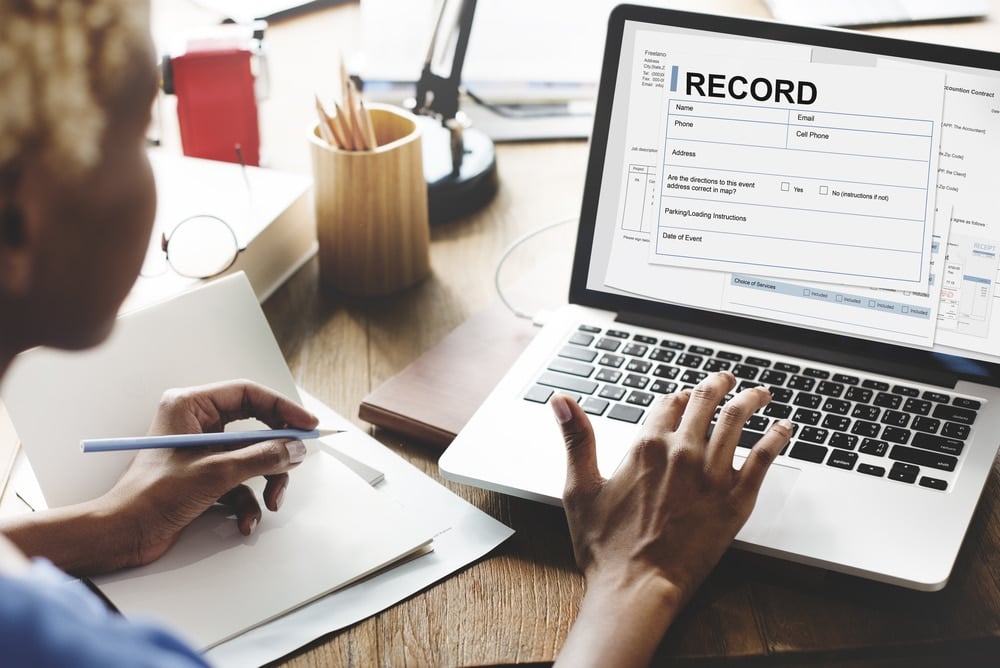Performing a VIN Reverse Lookup: What You Need To Know
Cindy Ellis - November 3, 2022

Many individuals that own a car or motorcycle have likely heard of a VIN and may even know where to locate it on their vehicle but are unsure of what the VIN actually is. You may also be curious about what you can find out about someone, or what background information can be found out about you, by looking up a VIN.
Our article will help you understand everything about the vehicle identification number (VIN), its purpose, and how much personal information is connected to your vehicle’s VIN.
What Is a VIN?
A vehicle identification number, commonly known as a VIN, is a distinct 17-character number and letter combination that identifies your vehicle. The VIN is printed on a single line and is found in several places around your vehicle, while each set of characters in the VIN holds specific identifying information for your car’s make, model, and country of origin.
It’s important to note that if your vehicle was manufactured before 1981, it might have less than 17 characters.
If you look closely at your VIN, you can decode important information about your vehicle. We give you a brief overview of how to decode these letters and numbers below.
- First character – the country of vehicle manufacture
- Second character – the manufacturer’s name
- Third character – the vehicle type
- Characters four through eight – vehicle information such as engine type, brand, model, series, and vehicle body type
- Ninth character – security check digit that helps to identify your VIN as a valid number
- Tenth character – the model year of your vehicle
- Eleventh character – the location of the assembly plant that produced your vehicle
- Characters twelve through seventeen – these characters are your vehicle’s serial number
Alternatively, if you don’t want to figure out the information in your VIN yourself, you can use an online VIN decoder to process this information automatically. However, keep in mind that an online VIN decoder likely won’t work for any cars that don’t have the standardized 17-character VIN.
Where to Find Your Vehicle’s VIN?
Your vehicle will have its VIN in a number of places for easy access and to act as a security measure. VIN swapping or tampering with a VIN is illegal and considered a federal crime. The more places the VIN is located around your vehicle—some of these being harder to reach—the more difficult it is to tamper with.
The lowest left corner of your dashboard near the steering wheel is the most accessible location to locate the VIN on your car. You may also see the VIN somewhere on the driver’s side doorjamb, on the engine firewall of your car, or on another key car component such as the transmission (other locations depend on your car’s specific model).
For motorcycles, you can locate the VIN stamped on the right side of the steering head or somewhere on the body of the bike. Again, the VIN’s exact location depends on your motorcycle’s make and model.
You can also consult your owner’s manual or search the model online for help locating your VIN.
The Importance of VINs
VINs are an important part of the vehicle manufacturing process as this standardized number holds a lot of information about the vehicle. Below, we discuss some of the main ways that VINs are useful.
Used Car Purchasing
One of the most common ways individuals interact with VINs is when buying a used car. Knowing the VIN of the car you are interested in will help you look up vital information about that car, such as purchase history, mileage, and even accident records. Additionally, many car sales websites offer free VIN searches so you can pull up a report of a car’s history and make an informed buying decision.
Repairs and Maintenance
When you take your car or motorcycle in for repairs, the technicians dealing with your car will typically scan the VIN. This is done to identify your car and learn vital information about its make, model, and manufacturer so that proper repairs are made and all of the parts selected will fit your car’s exact needs.
Law Enforcement Uses
VINs are highly important when it comes to law enforcement. Often, when cars are stolen, the numbered license plates will be stolen or altered in some way. Scanning the VIN helps law enforcement officers identify the car to compare it to the information about the stolen car. This is also why altering a VIN in any way is considered a federal crime.
Can You Find Information About Someone With Their VIN?
While a VIN does give important information about a vehicle, such as purchase history, mileage, and accident reports, you are unlikely to find personal information about someone, like their name, address, or phone number when using a VIN.
A VIN reverse lookup tool is likely to only offer information about the car, not any information about the car’s owner. This is primarily done for safety reasons and to stop private, personal information from being easily obtainable just by viewing a vehicle’s VIN.
That being said, if you are trying to find information about a person who may have committed a hit and run, violates traffic laws, or you suspect has stolen a vehicle, don’t waste time trying to find their identity using the VIN. Instead, report the issue to your local law enforcement officers and give them the VIN. Law enforcement officers and other authorized legal professionals will likely be able to find personal information about the owner of the vehicle using the VIN that the public generally doesn’t have access to.
You should also remember that tailing the car in question to figure out their address, trespassing to try and find the VIN on someone else’s car, or damaging a car in any way to try and obtain the VIN are all crimes. So play it safe when attempting to figure out information using only a VIN, and always get law enforcement involved if you believe a crime has been committed.
Obtaining the VIN Information You Need
The vehicle identification number is an important piece of identification information for your vehicle. This number identifies your car’s make and model, making it easier for repairs and maintenance, and it also holds purchase history, mileage, and other driving or sales records.
So, while you can’t obtain personal information about a car’s previous or current owner with a VIN, knowing your own VIN or the VIN of a used car you want to purchase can still help you obtain plenty of valuable information.






